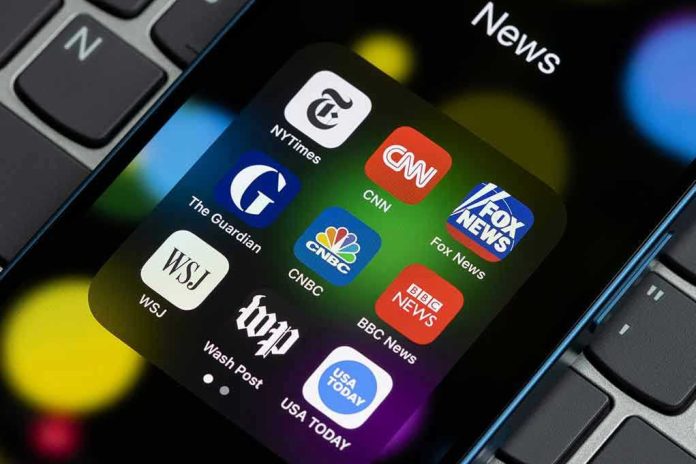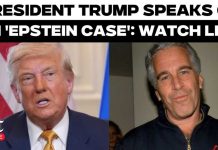
The abrupt end to a fiery CNBC interview between Joe Kernen and Senator Ruben Gallego highlights the ever-deepening partisan divide over federal spending and health care.
Story Overview
- CNBC’s Joe Kernen cuts off interview with Senator Ruben Gallego.
- Discussion focused on government shutdown and ACA subsidies.
- Interview ended amid personal accusations and cross-talk.
- Highlights broader partisan tensions in U.S. politics.
Interview Breakdown
On October 27, 2025, CNBC’s “Squawk Box” became the stage for a dramatic showdown between host Joe Kernen and Senator Ruben Gallego. The conversation, which started as a discussion on the looming government shutdown and Democratic efforts to extend Affordable Care Act (ACA) subsidies, quickly escalated into a heated exchange. Kernen challenged Gallego on the Democrats’ spending proposals and questioned the rationale behind a $1.5 trillion figure, leading to a clash that ended with Kernen abruptly declaring, “We’re finished!”
The interview, which lasted several minutes, became an emblem of the broader political impasse in Washington, D.C. Both parties have been locked in a stalemate over federal spending priorities, with Democrats pushing for ACA subsidy extensions to prevent premium hikes for millions of Americans. Republicans, however, have resisted tying health care spending to broader funding bills, arguing for a more restrained approach to federal expenditures.
Historical Context
The roots of this conflict can be traced back to long-standing debates over government shutdowns and health care policy in the U.S. Past shutdowns, like those in 2013 and 2018-2019, have frequently involved disputes over health care and entitlement programs. The ACA subsidies have been a recurring flashpoint, as Democrats see them as crucial for maintaining affordable coverage, while Republicans view them as unsustainable financial burdens.
The current situation reflects a familiar pattern: Democrats advocating for expanded health care funding as a priority in budget negotiations, while Republicans focus on limiting federal spending. This dynamic has often brought negotiations to a standstill, with both sides playing a high-stakes game of political brinkmanship.
‘We’re Finished!’ CNBC’s Joe Kernen Shuts Down Fiery Interview With Senate Democrat #SenateDemocrats #Senate #Democratshttps://t.co/PdENep754I
— Mark W Frakes (@mfrakes55) October 28, 2025
Media and Political Dynamics
The interview’s abrupt end underscores the complex role media plays in political discourse. While journalists like Kernen aim to facilitate public debate and hold politicians accountable, they can also become participants in the political drama. The tension between Kernen and Gallego serves as a microcosm of the current media landscape, where interviews can quickly turn into confrontations.
For Gallego and his Democratic colleagues, the focus remains on preventing premium increases for ACA recipients, a stance they argue is both a moral obligation and a practical necessity. Meanwhile, Republican leaders, including Speaker Mike Johnson, have maintained their opposition to linking health care spending to the continuing resolution, emphasizing fiscal responsibility and negotiating leverage.
Implications and Expert Perspectives
In the short term, the impasse has led to a government shutdown, disrupting federal services and creating uncertainty for ACA recipients. The long-term implications could be even more significant, with potential erosion of public trust in both government and media. Experts warn that repeated shutdowns undermine government credibility and can lead to increased polarization and entrenchment of negotiating positions.
Policy analysts stress that the ACA subsidy extensions are critical for maintaining affordable coverage for millions of Americans. Political commentators, however, caution against using government shutdowns as leverage for policy goals, as such tactics can harm public trust and disrupt essential services. The broader industry impact includes potential instability in the health insurance market and a reflection on media standards for civil discourse.













